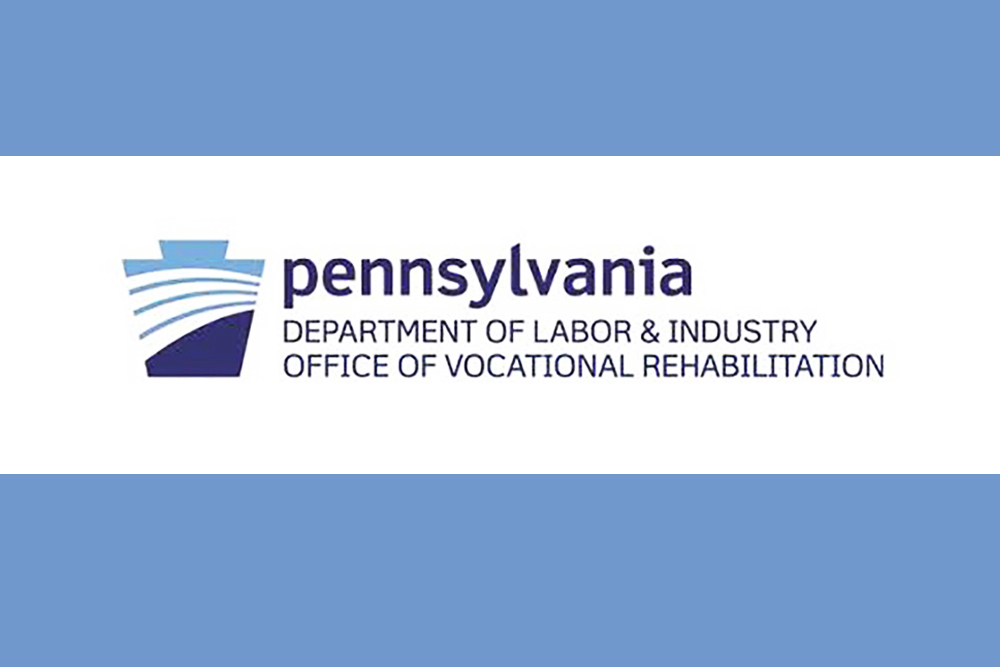The presentation materials, handouts, and recordings of the February 3 joint meeting of the RCPA Children’s and Mental Health Committees, as well as the Children’s Committee meeting, are now available. Materials include documents relating to the panel presentation on the needs and opportunities in early childhood services, and other documents referenced in the committee meeting discussions.
OMHSAS Releases ASD Survey Data
Last Friday, at the state’s Act 62 External Work Group meeting, the Office of Mental Health and Substance Abuse Services (OMHSAS) released and reviewed the data collected by HealthChoices contractors during the April 2015 survey of autism spectrum disorder (ASD) service capacity. This point-in-time survey reflects what was at that time the level of ASD service capacity for the delivery of behavior specialist consultant and applied behavior analysis services.
Among the highlights in this data are service access trends as of April 2015, showing:
- A 19% level of service access delays of more than 31 days, with delays ranging by managed care organizations from 14% to 30% for children that had been accepted, evaluated, and authorized for services.
- The level and reasons given for staff recruitment challenges, showing a significant level of hiring challenges among providers, with the predominant reasons being the licensure requirements of
- At least one year of experience involving functional behavior assessments of individuals under 21 years of age; and
- At least 1,000 hours of in-person clinical experience with individuals with behavioral challenges or experience in a related field with individuals with an ASD.
During review and discussion of the data, OMHSAS Deputy Secretary Marion indicated that OMHSAS will begin to meet with the managed care organizations, to more closely analyze the data, and discuss approaches and solutions to the service access and professional labor pool challenges in provider networks.
Rep. Dan Miller to Hold Disability & Mental Health Summit
RCPA is proud to announce that Rep. Dan Miller will be holding his Third Annual Disability and Mental Health Summit.
MH Outpatient Regulations Update
RCPA has been advocating for years for significant changes to the Mental Health Outpatient regulations to help to protect and strengthen mental health outpatient services in Pennsylvania. In 2010, RCPA developed a position paper outlining the major problems in this area. In response to this crisis, the Office of Mental Health and Substance Abuse Services (OMHSAS) developed a task force to work on regulation changes. The task force was a broad range of stakeholders which included consumers, counties, providers, and behavioral health managed care organizations. The task force worked for several years to develop a new set of regulations intended to protect and strengthen mental health outpatient services. The job of the task force was complete in 2014 and OMHSAS submitted the revised regulations to internal sources for approval. From beginning to now, it has been six years since we requested help. OMHSAS responded with strong support but the regulations have been held up in various areas of the department and the administration.
We received the following email today from Jean Rush, who has been the lead at OMHSAS since the beginning of the project:
“I wanted to share the current status of the OP regulation package since we drafted the revisions. With the expansion of Medicaid, the department has made changes to our State Plan Amendments for compliance with ACA which have been approved by CMS. This will require some minimal changes to the OP regulation package which were not an issue during our work.
OMHSAS will be making the minimal changes to the regulation package in conjunction with the Office of Medical Assistance Programs (OMAP) as the Medicaid Authority for the Commonwealth, as well as our Office of Legal Counsel.
The changes will not impact your recommendations but are necessary for compliance and the ability to complete the IRRC review. We will share the changes with you via email and if there are any areas where input is needed, I will be contacting you to schedule a call to discuss.
We appreciate all of the time and dedication to this project and will continue to work on making the changes to move this regulation package to completion. It is still a priority for the department.”
RCPA is hopeful that a resolution is forthcoming and will keep you all posted.
Proposed Rule Released to Measure Performance of ACOs
The Centers for Medicare and Medicaid Services (CMS) released a proposed rule that was published in the February 3, 2016 Federal Register, which updates the methodology used to measure the performance of Accountable Care Organizations (ACOs) in the Medicare Shared Savings Program.
Under the proposed rule, CMS would modify the process for resetting the benchmarks, which are used to determine ACO performance for those renewing their participation agreements. The proposed rule addresses changes to the Shared Savings Program that would modify the program’s benchmark rebasing methodology, to encourage ACOs’ continued investment in care coordination and quality improvement, and identifies publicly available data to support modeling and analysis of these proposed changes. In addition, it would streamline the methodology used to adjust an ACOs historical benchmark for changes in its ACO participant composition. Comments on the proposed rule are due by March 28, 2016.
Adult Protective Services is Offering Trainings/Webinars
The Department of Human Services/Bureau of Adult Protective Services is offering trainings/webinars for Adult Protective Services.
Complete online registration at the Survey Monkey LINK below.
Please feel free to share this information with other staff and providers.
With new webinar software we have twice as many logins available and will hopefully be able to accommodate all requests.
Adult Protective Services and Mandatory Reporting Requirements
How: Webinar and In-Person Attendance available
Where: Clothes Tree Building, DGS Complex (former Harrisburg State Hospital Campus)
What: Overview of Act 70, Adult Protective Services Law, eligibility criteria, DHS and Liberty Healthcare Responsibilities; the process for reporting, mandatory reporting requirements, and statutory definitions.
When:
- Thursday, February 25 at 1:00 pm
- Tuesday, March 15 at 10:00 am
Complete the online registration survey at https://www.surveymonkey.com/r/DHS_APS_Training
Information and webinar link will be sent prior to the presentation. Contact Deborah Bender at debbender@pa.gov with any questions or concerns.
IDD Update February 3, 2016
OVR Policies Revisions
The Office of Vocational Rehabilitation is updating its policies and procedures regarding “College and post-Secondary Training” and “Comprehensive Transition Programs.” Comments are due by Monday, February 22, via either email or mail to Pamela Brauchli, OVR, 1521 N Sixth Street, Harrisburg, PA 17102.
HCBS Waiver Methodologies
The US Office of Disability Employment Policy (ODEP) has released a review of the reimbursement rates and methodologies used by each state, for their home and community based services (HCBS) waiver, for supported employment and integrated day services. This report covers each service the state provides under the HCBS waiver, states’ limits on what is covered by each waiver’s services, number of users for each service, and the average cost per unit. Topics include customized employment, self-employment, resource leveraging, and waiver services.
HCBS Settings Toolkit
The Home and Community Based Services (HCBS) Advocacy Coalition has developed a new toolkit with detailed information regarding the new HCBS settings rules. The toolkit contains three documents:
1) The Medicaid HCBS Settings Rules: What You should Know;
2) HCBS Regulations Q&A: Settings Presumed to be Institutional & the Heightened Scrutiny Process; and
3) HCBS Setting Rules: How to Advocate for Truly Integrated Community Settings.
ODP Updates
The Office of Developmental Programs has released the following information:
- Announcement #009-16: Supporting Families Community of Practice Framework for System Change Series Webinar; scheduled for January 28, 2016 at 2:00 pm.
- Communication #010-16: Biennial Provider Qualifications; due by March 31, 2016.
- Announcement #011-16: Independent Monitoring for Quality 2016 Manual Update Issued
Autism Studies in Girls, Women Getting More Attention
RCPA Opposes DHS Plan to Raise Age Limit Under CHC
On January 27, 2016, a letter was sent to Department of Human Services (DHS) Secretary Ted Dallas, requesting reconsideration of DHS’ decision to raise the minimum age of eligibility for Community HealthChoices (CHC). RCPA was one of more than 35 organizations and individuals that signed this letter of support.
Currently, the minimum age of eligibility for the Attendant Care, Independence, and OBRA waivers is 18. However, the CHC Request for Proposal (RFP) states, “CHC will serve adults age 21 or older who require Medicaid Long-Term Services and Supports (MLTSS) (whether in the community or in private or county nursing facilities)…. and current participants in DHS’ (Office of Long-Term Living) waiver programs who are 18-to 21 years old.” This would change the minimum age for home and community-based services administered by OLTL to age 21.
Concern was noted in the letter of how raising the minimum age of eligibility for CHC will create large gaps in services. Many examples were elaborated on the services that keep young adults in their homes and communities and out of institutional care, including home modifications, vehicle modifications, assistive technology, respite, and residential habilitation. The letter urges DHS to fix this critical problem before the CHC RFP is finalized.
OCDEL Requests Input to Promote “Government that Works”
In an effort to promote “Government that Works,” the Office of Child Development and Early Learning (OCDEL) has made it a priority to integrate early childhood education services, so that providers can offer multiple OCDEL services to families without duplicating paperwork, and families can more easily access the services they need. To lead and promote this approach to improving and streamlining bureaucratic and operational challenges faced by providers and families, OCDEL has produced a short video overview with Deputy Secretary Michelle Figlar.
Providers are also being asked to share their experiences with OCDEL programs to help shape this work. It is critical for the RCPA Children’s Steering Committee and work groups to hear how OCDEL programs work for providers and families. Input from providers of early childhood care will significantly inform and influence this work. For RCPA members, it will be vital that providers of early childhood mental health, behavioral consultation, autism, and pediatric rehabilitation services, that need to be delivered in a coordinated and collaborative manner, help to inform this process. RCPA members who serve young children are encouraged to complete a short survey by Monday, February 8. The survey includes five pages of questions and should take an average of five minutes to complete. For more information, visit the PA Keys website.
OCDEL has made stakeholder engagement one of its priorities to assure high quality services for children and families. For a listing of all open stakeholder engagement opportunities, please visit the PA Keys website.

















